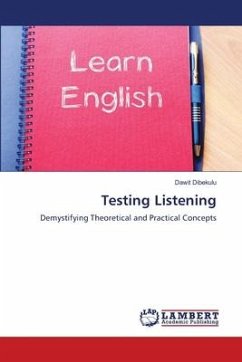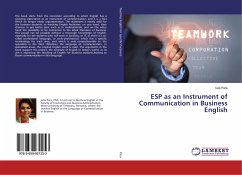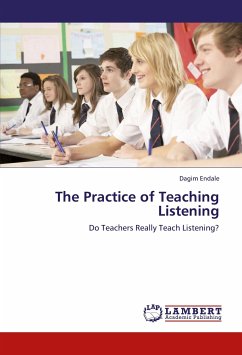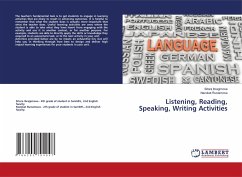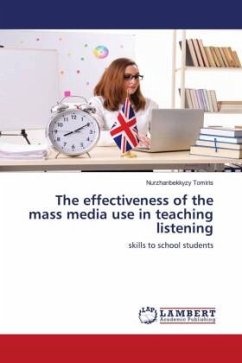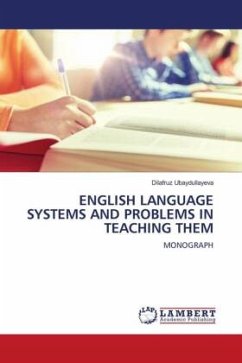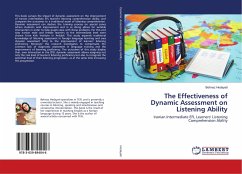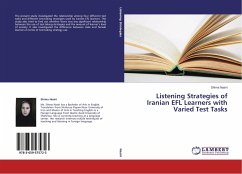This article discusses theoretical and practical considerations in developing tests of listening comprehension in English language learning with a particular emphasis on the choice of listening passages, assessment tasks and other things. The history of listening assessment can be traced back to as early as the mid twentieth century. Listening is a vital skill but it can be challenging to assess. The listening construct is defined as the process of receiving, attending to, and assigning meaning to aural stimuli. Questions should be developed while listening to, not reading, the intended passage. Selection of passage may depend upon orality versus literacy, audio versus video, passage length, content familiarity, vocabulary and sentence structure, elaborations and redundancies, speech rate and pauses, and fuzzy word boundaries or other speech phenomena. Consideration must be given to type of response expected, including multiple choice, true-false, open-ended, recall, and nonverbal. Presentation, effects should also be part of the decision, such as advance organizers, language of instructions and questions, and uniformity of presentation. New tests should be refined by pilot testing before actual use. If you need to assess your students' listening skills there are a number of factors you need to consider. These include considering the test taker and their needs, the kind of information you want to know about their listening skills and the most appropriate ways to assess these skills so that your test is appropriate and accurately scored.
Bitte wählen Sie Ihr Anliegen aus.
Rechnungen
Retourenschein anfordern
Bestellstatus
Storno

